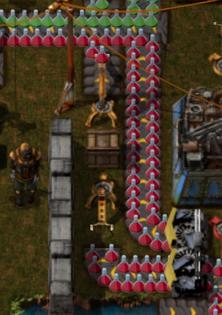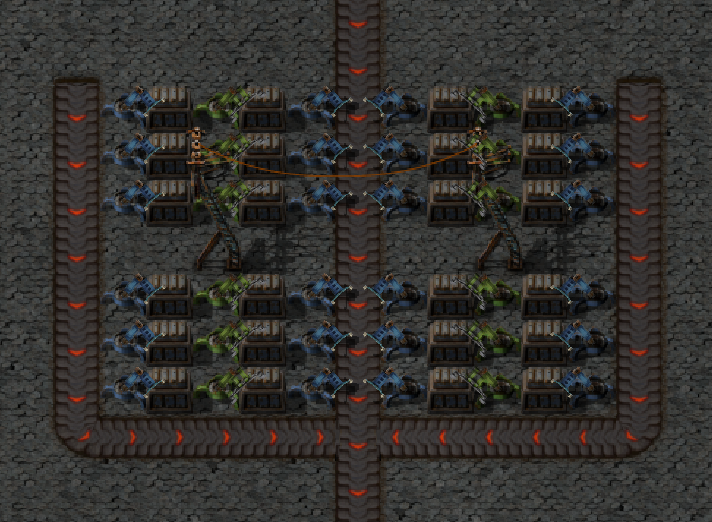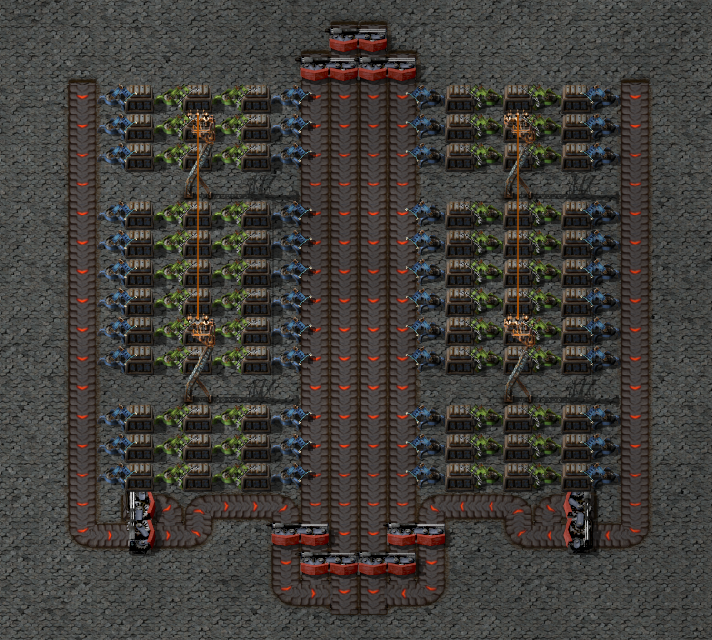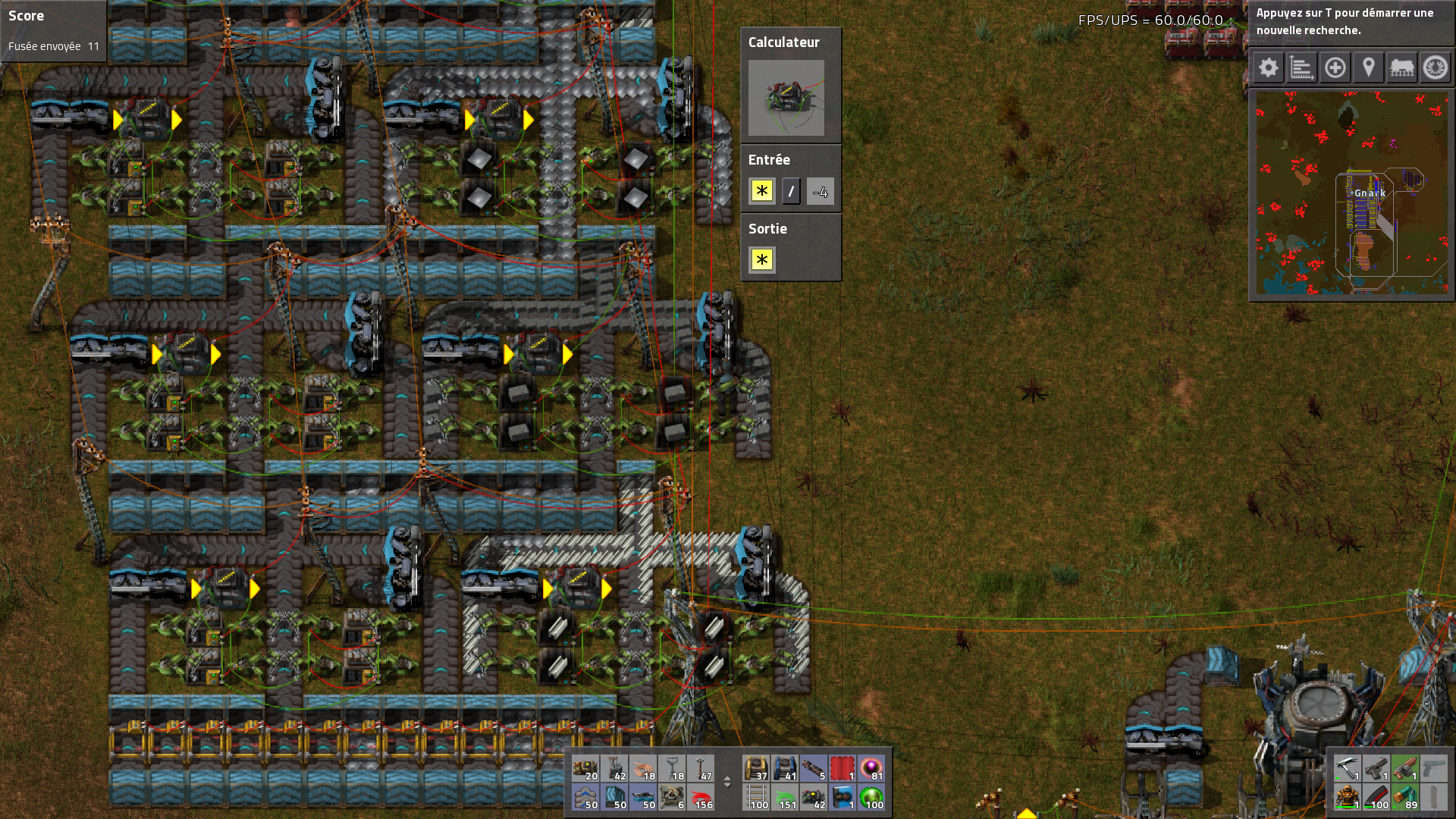This isn't a 'simple' demonstration of a load-balanced output buffer, but it gets the job done. I am also really tight on space for a place where this would be functional, even if for a demonstration.
It can be expanded to around 3-4 inserter-chest sets, or more if you really need that much storage capacity. This is enough to signal a shortage before there actually is one. Ideally, i'd suggest 3-4 chests in a line to help keep the smelters running during early low demand periods.
The simple shift-balancer works because the output is one-side only. A storage site, as opposed to a simple buffer, would be a bit more comprehensive, but I don't intend for the entire base to run off this one inserter.
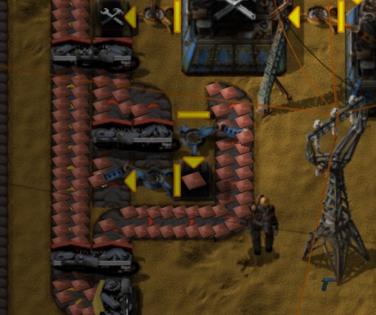
This is an ultra-light buffer ideal for buffering research packs. Pretty much what I tried to describe earlier, but I had to put a bend in it due to space restrictions. I will make ANYTHING work.. somehow.
